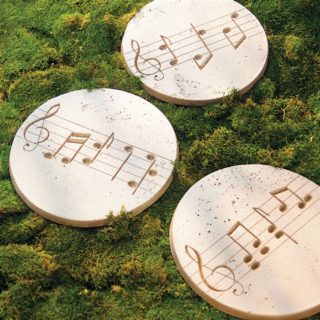Some may say that it is practice that makes the student successful in their music studies. However, practicing is only part of the process. Here are some of our tips on setting yourself up for success in music.
Be part of a musical community.
As many students find in being part of a school band, choral, or orchestra program, being part of a music ensemble can be enjoyable and rewarding. But how can a music student who is not part of a school ensemble enjoy the benefits of being in a musical community? Some studios offer group learning opportunities such as weekly group lessons or master classes. A private lesson teacher might even team up students of similar playing levels for duets or trios. Thriving music studios host special events and performances throughout the year providing students with opportunities to gather with peers who share a similar interest. In addition, studios with multiple teachers offer the opportunity for students to be supported and mentored by a community of musicians. Students who are engaged in a supportive musical tribe will find that they are likely to stay more motivated than students who participate in a more solitary musical experience.
Peform often.
Concerts, festivals, and assessments provide much needed stepping stones for musical growth. Can a student progress without performing? Absolutely. But it can be harder for some students to stay motivated without performance goals. Several professional music educator organizations such as Music Teachers National Association, the Royal Conservatory of Music, and the National Federation of Music Clubs provide students with annual festivals, competitions, and assessment opportunities. And let’s not forget that music is meant to be shared! It is gratifying for students to be congratulated for their hard work and progress at recitals and other performance related events.
Set long and short-term goals.
No matter which instrument you study, music is a year-round commitment. Without a goal plan and vision, it is easy for students to become bogged down in the day to day work needed for progression. Have a piece of music you have always wanted to play? Tell your teacher! She will be delighted to know of your goal and customize a learning experience to help you get to where you need to be to make this musical dream come true. Very specific long and short-term goals keep practice sessions purposeful and effective.
Spruce up your practice space!
What makes for a good practice space? A well-maintained, well-tuned instrument is a priority. If it is a piano, be certain to have your piano tuned at least once per year, preferably every six months. Each instrument has its own maintenance needs, so definitely speak with your teacher about how to properly maintain yours. Have pencil and paper on hand for jotting down any questions for your teacher. Make sure the lighting is adequate for reading your music. You may find it helpful to have some type of recording device. Cell phones can be a distraction during practice, but if used for specific purposes like recording your playing or using a metronome or tuning app, a phone can come in handy. Recording your music and listening back critically is an excellent way to determine what needs work, and to hear your progress over the course of the week.
Communicate with your teacher.
During lessons your teacher will pour out his/her best advice to help you advance in a particular skill or take your piece to the next level. Listen attentively and learn. Make notes if you think you may forget all of that golden wisdom. Every goal and practice strategy given by your teacher will provide your roadmap for practice, and success, in the week ahead.
So students, find you musical tribe! Once you are surrounded by a supportive community of teachers and other students, focus on your goals. Every day provides an opportunity to take another step inching you closer to your musical dreams!
